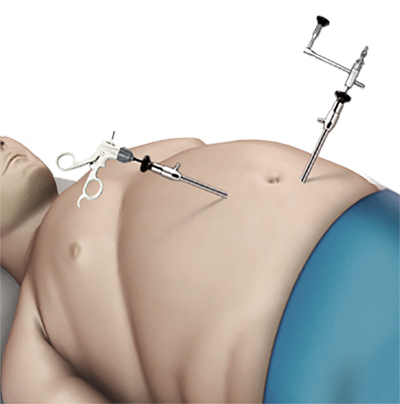
Bariatric surgery, including gastric sleeve, gastric bypass, and lap band surgery, is an elective surgery. We choose to have the surgery. It isn’t something that’s done without our consent, like emergency surgery following a traumatic accident. We make the conscious decision to allow a surgeon to open our bodies and alter them. Whether elective surgery, including weight loss surgery, is the right thing for you is a decision only you, along with your doctor, can make.
Although bariatric surgery is elective, that doesn’t mean it’s a cosmetic procedure. Gastric sleeve, gastric bypass, and lap band surgeries are often medically recommended for patients who are obese and overweight with comorid conditions, such as type 2 diabetes, hypertention, heart disease, sleep apnea, lipid abnormalities, osteoarthritis, and some gastrointestinal disorders. Bariatric surgery is proven to benefit people with obesity not just in weight reduction, but also contribute to improvements in blood sugar, blood pressure, arthritis, and heart disease. If you do choose to have weight loss surgery, the one thing you will likely ask is, “How safe is it?” Bariatric surgery is generally regarded as safe by the medical community. But as it is an elective surgery, it’s important to know the potential risks in order to make an informed decision. According to a study presented at the American Society for Metabolic and Bariatric Surgery (ASMBS) annual meeting, the 30 day mortality rate for gastric sleeve is 0.08%, gastric bypass is 0.14%, and gastric band is 0.03%. In terms of the safety of the procedures based on mortality, the safest is gastric banding, followed by gastric sleeve, and then gastric bypass. To put these numbers into a clearer perspective, let’s compare them to other common elective surgeries:
| Surgery | Mortality Rate |
| Gastric Band | 0.03% |
| Tonsillectomy | 0.03% |
| Gastric Sleeve | 0.08% |
| Gastric Bypass | 0.14% |
| Total hip replacement | |
| Laparoscopic hiatal hernia repair | |
| Open hiatal hernia repair |
As you can see, bariatric procedures have a lower mortality rate than hernia surgery and hip replacement, and gastric band surgery has the same mortality rate as getting your tonsils removed.
While every surgery carries risks, including the risk of death, bariatric procedures are widely regarded as safe, and in fact have lower death rates than many common surgical procedures. Comorbidities (such as diabetes and high blood pressure) can complicate many surgical procedures, and add to the reasons that bariatric surgeons require such intensive presurgical testing before performing any bariatric surgery. It is all in an effort to keep you safe before, during, and after your gastric sleeve, gastric bypass, or gastric band surgery.
When considering bariatric surgery, it’s important to weigh the risk of having the surgery versus not having the surgery. While there is a risk of death from having a bariatric procedure (0.03-0.14%), there is a risk of death due to obesity and obesity-related medical conditions. According to the ASMBS, “patients who have weight loss surgery have a reduction in their risk of death by 40%. Death related to diabetes is reduced by more than 90% and from heart disease by more than 50% for patients after weight loss surgery.”
If you have a BMI over 35 and are considering weight loss surgery, schedule your free informational session with Dr. Shillingford, MD, PA today by calling (561) 483-8840. Dr. Shillingford is a board certified surgeon specializing in advanced laparoscopic, robotic, and bariatric surgery. He has performed over 4,000 surgical procedures, including gastric sleeve, gastric bypass, and lap band surgery, as well as gallbladder removal, appendectomy, and cholecystectomy. His weight loss surgery patients often come from Coral Springs, Fort Lauderdale, and Boca Raton, but also often come from farther distances like Orlando, Tampa, and Jacksonville for his respected surgical skills, comfortable bedside manner, and affordable out of pocket price.

 Am I A Candidate
Am I A Candidate  BMI Calculator
BMI Calculator  Why Choose Us
Why Choose Us